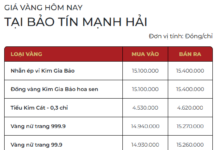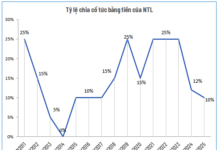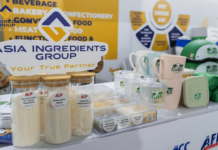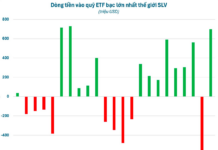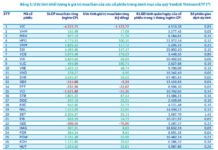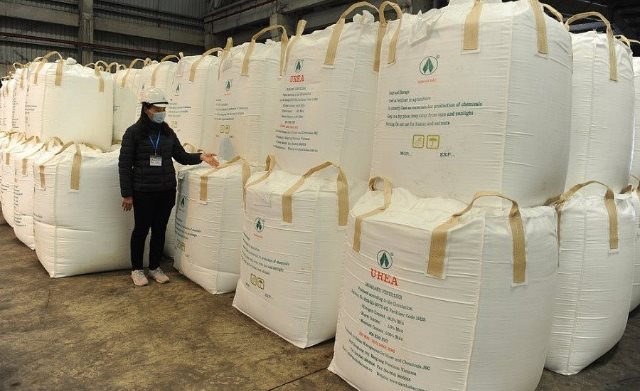
Illustrative Image
According to preliminary statistics from the General Department of Customs, fertilizer imports to Vietnam in July reached over 424,000 tons, valued at more than $137 million, a decrease of 6.9% in volume and 11.1% in value compared to June.
Cumulative imports in the first seven months of the year reached a milestone of 3.06 million tons, valued at nearly $980 million, an increase of 55% in volume and 46.3% in value compared to the same period last year.
The average import price recorded a decrease compared to the previous year, reaching $320/ton, a corresponding decrease of 6%.
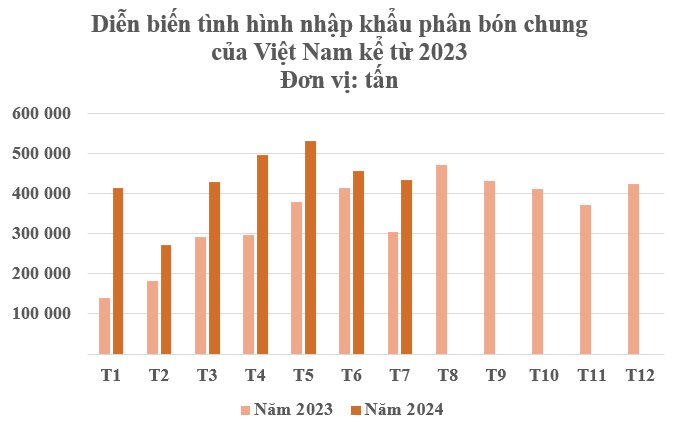
In terms of market share, China remains Vietnam’s largest fertilizer supplier, accounting for 40% of total imports. Over the past seven months, fertilizer imports from China reached 1.25 million tons, equivalent to $366 million, an increase of 18.8% in volume and 13.1% in value compared to the same period last year.
In early September 2023, China requested some enterprises to temporarily suspend urea exports after domestic prices surged. The moves by the world’s leading fertilizer producer have pushed up global urea prices and also impacted Vietnam’s fertilizer exports, which have increased significantly in recent times.
Notably, the world’s fourth-largest fertilizer producer is significantly increasing its exports to Vietnam. Specifically, Israel exported 79,283 tons of fertilizer to Vietnam, with a turnover of more than $29.6 million, an increase of 3,788% in volume and 884% in value compared to the same period last year.
The average import price decreased significantly by 293% year-on-year to $375/ton.
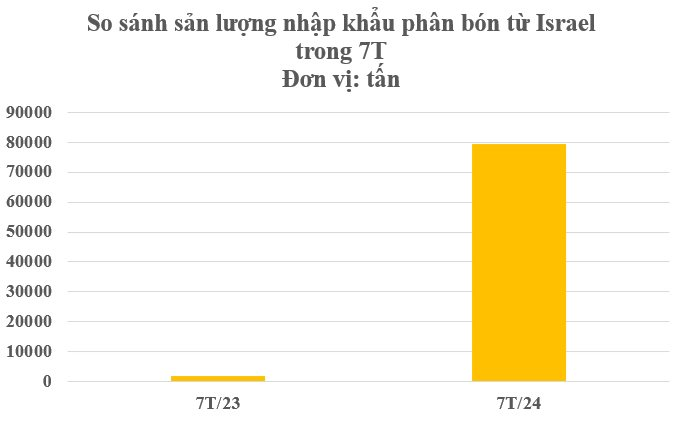
Israel accounts for about 6% of global potash production and is the world’s fourth-largest potash exporter after Canada, Russia, and Belarus, supplying about 8% of total global exports in 2022. Israel’s Ashdod port, located just north of the Gaza Strip, is a crucial export hub for the country’s potash exports.
Regarding global demand in 2024, the International Fertilizer Association (IFA) forecasts that fertilizer consumption worldwide will increase by 4% compared to 2023, reaching 192.5 million tons. Factors such as geopolitical instability and extreme weather conditions have kept key commodity prices, including rice, wheat, and corn, high compared to the 10-year average.
Currently, Vietnam is self-sufficient in fertilizer supply. The country’s total designed production capacity for fertilizer is approximately 20.7 million tons, including 16.1 million tons of inorganic fertilizer and 4.6 million tons of organic fertilizer, while importing around 3-4 million tons. Meanwhile, the annual fertilizer consumption is 10.4 million tons/year, of which 7.6 million tons/year are inorganic fertilizer.
Vietnam is considering imposing a 5% tax on fertilizers. Specifically, the Draft Law on Value Added Tax (VAT) Amendment has proposed including fertilizers as goods subject to VAT, with a tax rate of 5%, while the current law exempts fertilizers from VAT.
The Minister of Finance stated that the diverse opinions on the regulation of imposing a 5% VAT on fertilizers would be collected, considered, and re-evaluated for impact before being submitted to the National Assembly in the last session of 2024.









